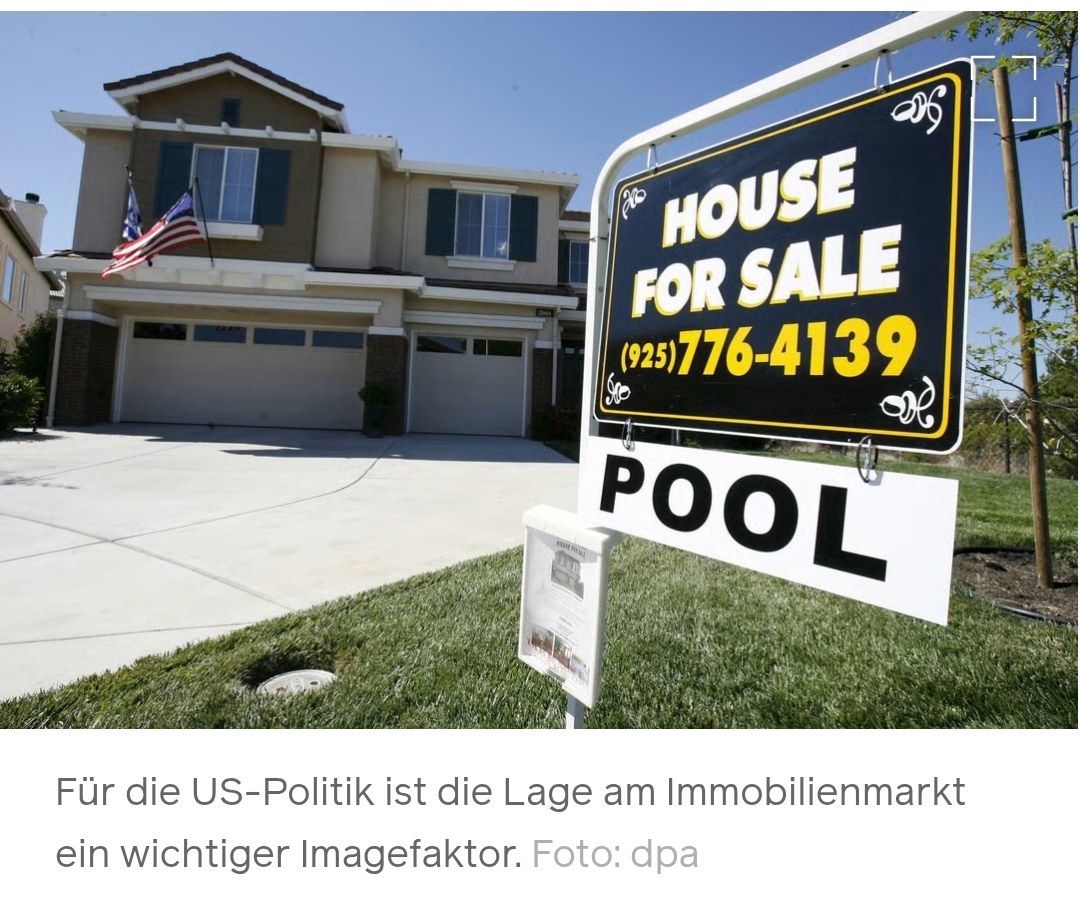My dears, politicians are once again dictating the price of a share.
Is this a buying opportunity for you, or rather a reason to flee the stock?
The share price of the rating company Fair Isaac has plummeted. The trigger should also make the rest of the US real estate sector sit up and take notice.
In simple terms, the rating company Fair Isaac (Fico) is the Schufa of the American real estate market. If Americans want a home loan from their bank, their Fico rating determines whether they get it. This prominent position was Fair Isaac's undoing on Wednesday: the company's share price plummeted by 15.74 percent. The worst daily performance in the broad S&P 500 index. What happened?
Owning your own home is an integral part of the American dream, which is why US politicians are keeping an eagle eye on the real estate market. According to the US Mortgage Bankers Association (MBA), demand for loans slumped by 5.1 percent last week compared to the previous week. Chief economist Mike Fratantoni blamed this on the high interest rates on home loans.
For Bill Pulte, Director of the US Federal Housing Finance Agency (FHFA), the development must have struck a nerve. The head of the agency first vented his anger at an MBA event and then on Platform X: "After the hard work of many great senators, including Senator Tim Scott, I am extremely disappointed with Fico's cost increases for American consumers." Fair Isaac's share price subsequently plummeted.
According to reports, Pulte was particularly upset by the credit rating agency's decision in November. At that time, Fair Isaac had raised the fee for granting mortgage loans from 3.50 dollars to 4.95 dollars. An increase of more than 40 percent.
The head of the authority also indicated that he wants to resume the FHFA's efforts to change the regulation of credit ratings. Since 2022, the authority has been planning to adjust the rules for homebuilders so that they only have to provide two credit ratings instead of three. This plan is viewed critically in the real estate industry as it is considered less meaningful. For Fair Isaac, on the other hand, it could mean a cut in fee revenue.
But why are investors so sensitive to the statements of a head of authority? One reason could be that this is not the first time that politicians have explicitly blamed Fico for the situation on the US real estate market. In a letter to the US Department of Justice in June last year, Republican Senator Josh Hawley accused Fico of using his dominant market position to drive up prices and called for the antitrust authorities to intervene.







